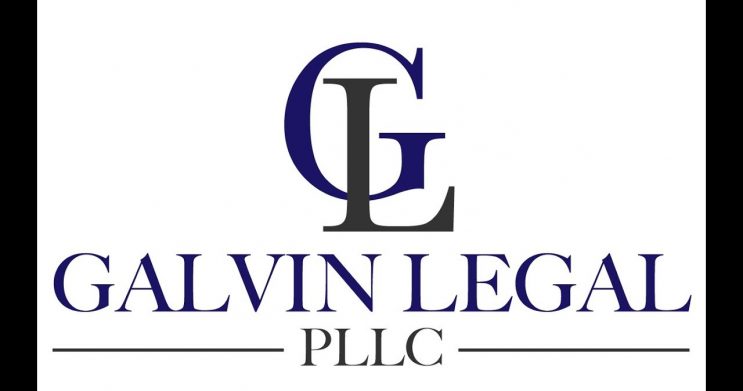 UPDATE 4/11/2020: According to FINRA’s March 2020 Disciplinary Actions: “Wilson-Davis & Co., Inc. (CRD #3777, Salt Lake City, Utah), Byron Bert Barkley (CRD #12469, Salt Lake City, Utah) and James C. Snow Jr. (CRD #2761102, Salt Lake City, Utah) December 31, 2019 – The firm, Barkley and Snow appealed a National Adjudicatory Counsel (NAC) decision to the Securities and Exchange Commission (SEC). The NAC had affirmed the findings and modified the sanctions imposed by the Office of Hearing Officers (OHO). The firm was fined $1,100,000, ordered to pay disgorgement in the amount of $51,624, plus prejudgment interest and required to retain an independent consultant to recommend changes to its WSPs. Barkley was fined $52,000, suspended from association with any FINRA member in all capacities for three months, suspended from association with any FINRA member in any principal and supervisory capacity for one year (to be served concurrently) and ordered to requalify as a principal by examination before serving in that capacity again. Snow was fined $77,000, suspended from association with any FINRA member in all capacities for three months, suspended from association with any FINRA member in any principal and supervisory capacity for one year (to be served concurrently) and ordered to requalify as a principal by examination before serving in that capacity again. The sanctions were based on findings that the firm engaged in short selling in violation of Rule 203(b)(1) of Regulation SHO of the Securities Exchange Act of 1934 (Reg SHO) because it failed to find locates for short transactions effected in low-priced stocks. The findings stated that the short sales were effected to carry out a speculative trading strategy implemented by a former registered representative and did not involve bona fide market making. In addition, the short sales were not subject to the market maker exemption. The findings also stated that the firm, through Snow, its president, CCO and AML compliance officer, failed to establish and maintain reasonable supervisory systems and WSPs in connection with the firm’s use of the market maker exemption, locate requirements and general compliance with Reg SHO. Snow was responsible for establishing and maintaining adequate supervisory systems and procedures, including systems and procedures relating to the firm’s Reg SHO compliance and the bona-fide market maker exemption. Snow did not do so. The firm’s WSPs did not provide procedures, processes, tests, or guidance that would permit an evaluation by supervisors at the firm of whether the particular facts of a short sale transaction established that a sale was made in connection with bona-fide market making activity. The firm did not even have procedures for locating or borrowing securities for its short sales because the firm considered all trading to be bona-fide market making. Moreover, the firm and Barkley, its vice president and head of trading, failed to reasonably supervise the representative’s trading. Barkley failed to adequately fulfill his responsibilities to supervise trading and ensure compliance with Reg SHO. Barkley did not ensure that the representative was acting as a bona-fide market maker and was otherwise complying with Reg SHO. Although Barkley monitored the representative’s trading in the stocks in real time and communicated frequently with him, Barkley did not regularly monitor the market maker quotes the representative was displaying to the market at the time of his trading. Consequently, Barkley failed to detect quotations in the stocks that were far away from competitive levels on either the buy or sell side. Barkley assumed that all of the representative’s short selling in the security was a part of bona-fide market making and simply signed off on his market maker applications. Barkley was not concerned whether the representative’s quotations were consistent with genuine market making, but rather the concern lay in the exposure and potential loss that his trading in the low-priced stocks created for the firm. Further, the firm, acting through Snow, failed to assign each registered person at the firm to an appropriately registered principal or representative that would be responsible for supervising that person’s activities. As a result, the firm and Snow failed to implement a reasonable supervisory system to supervise the representatives and principals at the firm. In addition, Snow and the firm created a heightened supervision plan for a representative that was untimely and insufficient. Snow was obligated to appropriately document decisions made with respect to heightened supervision; however, he and the firm did nothing. The firm and Snow also failed to reasonably supervise instant message communications of the firm’s representatives. Snow delegated the review of instant messages by the representatives to an unregistered person at the firm and failed to take reasonable steps to ensure that the delegated function was executed properly. The findings also included that the firm and Snow failed to establish and implement reasonable AML policies and procedures to detect, investigate and report, where appropriate, suspicious trading activity by filing an SAR. Snow was responsible for ensuring that the firm’s AML program was adequately tailored to the risks posed by the firm’s business activities and establishing an AML program to mitigate those risks. In addition, the firm and Snow failed to provide adequate AML training to firm staff. The sanctions are not in effect pending review. (FINRA Case #2012032731802)”
UPDATE 4/11/2020: According to FINRA’s March 2020 Disciplinary Actions: “Wilson-Davis & Co., Inc. (CRD #3777, Salt Lake City, Utah), Byron Bert Barkley (CRD #12469, Salt Lake City, Utah) and James C. Snow Jr. (CRD #2761102, Salt Lake City, Utah) December 31, 2019 – The firm, Barkley and Snow appealed a National Adjudicatory Counsel (NAC) decision to the Securities and Exchange Commission (SEC). The NAC had affirmed the findings and modified the sanctions imposed by the Office of Hearing Officers (OHO). The firm was fined $1,100,000, ordered to pay disgorgement in the amount of $51,624, plus prejudgment interest and required to retain an independent consultant to recommend changes to its WSPs. Barkley was fined $52,000, suspended from association with any FINRA member in all capacities for three months, suspended from association with any FINRA member in any principal and supervisory capacity for one year (to be served concurrently) and ordered to requalify as a principal by examination before serving in that capacity again. Snow was fined $77,000, suspended from association with any FINRA member in all capacities for three months, suspended from association with any FINRA member in any principal and supervisory capacity for one year (to be served concurrently) and ordered to requalify as a principal by examination before serving in that capacity again. The sanctions were based on findings that the firm engaged in short selling in violation of Rule 203(b)(1) of Regulation SHO of the Securities Exchange Act of 1934 (Reg SHO) because it failed to find locates for short transactions effected in low-priced stocks. The findings stated that the short sales were effected to carry out a speculative trading strategy implemented by a former registered representative and did not involve bona fide market making. In addition, the short sales were not subject to the market maker exemption. The findings also stated that the firm, through Snow, its president, CCO and AML compliance officer, failed to establish and maintain reasonable supervisory systems and WSPs in connection with the firm’s use of the market maker exemption, locate requirements and general compliance with Reg SHO. Snow was responsible for establishing and maintaining adequate supervisory systems and procedures, including systems and procedures relating to the firm’s Reg SHO compliance and the bona-fide market maker exemption. Snow did not do so. The firm’s WSPs did not provide procedures, processes, tests, or guidance that would permit an evaluation by supervisors at the firm of whether the particular facts of a short sale transaction established that a sale was made in connection with bona-fide market making activity. The firm did not even have procedures for locating or borrowing securities for its short sales because the firm considered all trading to be bona-fide market making. Moreover, the firm and Barkley, its vice president and head of trading, failed to reasonably supervise the representative’s trading. Barkley failed to adequately fulfill his responsibilities to supervise trading and ensure compliance with Reg SHO. Barkley did not ensure that the representative was acting as a bona-fide market maker and was otherwise complying with Reg SHO. Although Barkley monitored the representative’s trading in the stocks in real time and communicated frequently with him, Barkley did not regularly monitor the market maker quotes the representative was displaying to the market at the time of his trading. Consequently, Barkley failed to detect quotations in the stocks that were far away from competitive levels on either the buy or sell side. Barkley assumed that all of the representative’s short selling in the security was a part of bona-fide market making and simply signed off on his market maker applications. Barkley was not concerned whether the representative’s quotations were consistent with genuine market making, but rather the concern lay in the exposure and potential loss that his trading in the low-priced stocks created for the firm. Further, the firm, acting through Snow, failed to assign each registered person at the firm to an appropriately registered principal or representative that would be responsible for supervising that person’s activities. As a result, the firm and Snow failed to implement a reasonable supervisory system to supervise the representatives and principals at the firm. In addition, Snow and the firm created a heightened supervision plan for a representative that was untimely and insufficient. Snow was obligated to appropriately document decisions made with respect to heightened supervision; however, he and the firm did nothing. The firm and Snow also failed to reasonably supervise instant message communications of the firm’s representatives. Snow delegated the review of instant messages by the representatives to an unregistered person at the firm and failed to take reasonable steps to ensure that the delegated function was executed properly. The findings also included that the firm and Snow failed to establish and implement reasonable AML policies and procedures to detect, investigate and report, where appropriate, suspicious trading activity by filing an SAR. Snow was responsible for ensuring that the firm’s AML program was adequately tailored to the risks posed by the firm’s business activities and establishing an AML program to mitigate those risks. In addition, the firm and Snow failed to provide adequate AML training to firm staff. The sanctions are not in effect pending review. (FINRA Case #2012032731802)”
Galvin Legal, PLLC is launching an investigation on behalf of investors who may have suffered losses investing with Byron Barkley. If you suffered losses investing with Byron Barkley, then Galvin Legal, PLLC may be able to help you recover your losses in a Financial Industry Regulatory Authority (“FINRA“) arbitration claim.
Byron Barkley (CRD# 12469)
As of April 11, 2020, Byron Barkley’s FINRA BrokerCheck Report contains the following:
Disclosure Events
3 Regulatory Event(s)
Current and Previous Registrations
09/24/1969 – PRESENT WILSON-DAVIS & CO., INC. (CRD#:3777) SALT LAKE CITY, UT
FINRA requires brokerage firms to conduct due diligence on investments and to conduct a suitability analysis when recommending securities to a customer that takes into account the customer’s knowledge and experience. Brokerage firms that fail to conduct adequate due diligence or that make unsuitable recommendations can be held responsible for the customer’s losses in a FINRA arbitration claim.
If you suffered losses investing with Byron Barkley and would like a free consultation with a securities attorney, then please call Galvin Legal, PLLC at 1-800-405-5117.
This information is all publicly available and is being provided to you by Galvin Legal, PLLC.
Galvin Legal, PLLC is a national securities arbitration, securities mediation, securities litigation, securities fraud, securities regulation and compliance, and investor protection law practice. For more information on Galvin Legal, PLLC and its representation of investors, please visit www.galvinlegal.com or call 1-800-405-5117.
